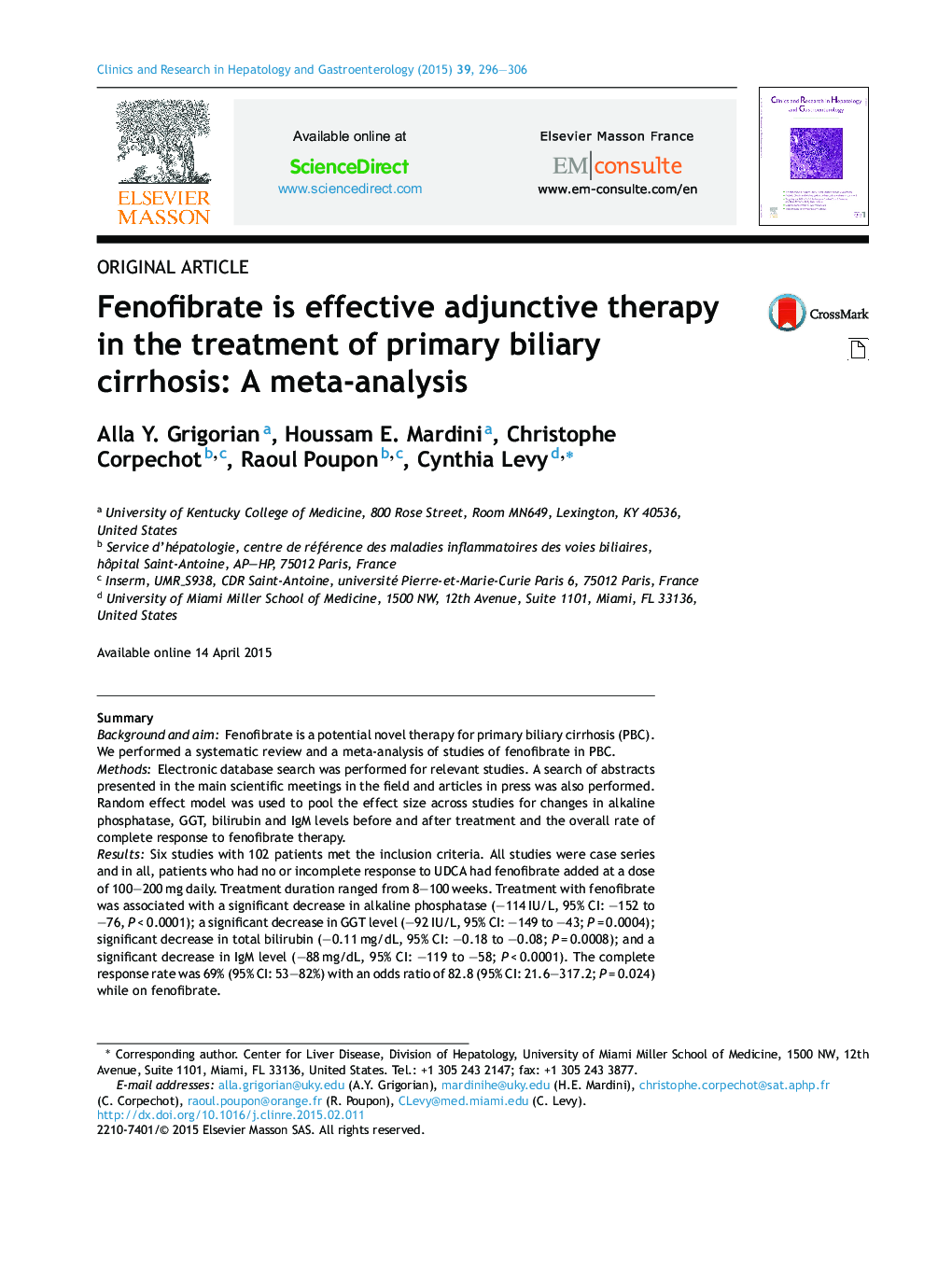| Article ID | Journal | Published Year | Pages | File Type |
|---|---|---|---|---|
| 3286192 | Clinics and Research in Hepatology and Gastroenterology | 2015 | 11 Pages |
SummaryBackground and aimFenofibrate is a potential novel therapy for primary biliary cirrhosis (PBC). We performed a systematic review and a meta-analysis of studies of fenofibrate in PBC.MethodsElectronic database search was performed for relevant studies. A search of abstracts presented in the main scientific meetings in the field and articles in press was also performed. Random effect model was used to pool the effect size across studies for changes in alkaline phosphatase, GGT, bilirubin and IgM levels before and after treatment and the overall rate of complete response to fenofibrate therapy.ResultsSix studies with 102 patients met the inclusion criteria. All studies were case series and in all, patients who had no or incomplete response to UDCA had fenofibrate added at a dose of 100–200 mg daily. Treatment duration ranged from 8–100 weeks. Treatment with fenofibrate was associated with a significant decrease in alkaline phosphatase (–114 IU/L, 95% CI: –152 to –76, P < 0.0001); a significant decrease in GGT level (–92 IU/L, 95% CI: –149 to –43; P = 0.0004); significant decrease in total bilirubin (–0.11 mg/dL, 95% CI: –0.18 to –0.08; P = 0.0008); and a significant decrease in IgM level (–88 mg/dL, 95% CI: –119 to –58; P < 0.0001). The complete response rate was 69% (95% CI: 53–82%) with an odds ratio of 82.8 (95% CI: 21.6–317.2; P = 0.024) while on fenofibrate.ConclusionsFenofibrate at doses of 100–200 mg daily appears to be effective adjunctive therapy in PBC patients who had no or incomplete response to UDCA. There is a critical need for larger scale randomized trials to determine its effect on liver-related morbidity and mortality (or progression towards end-stage disease).
